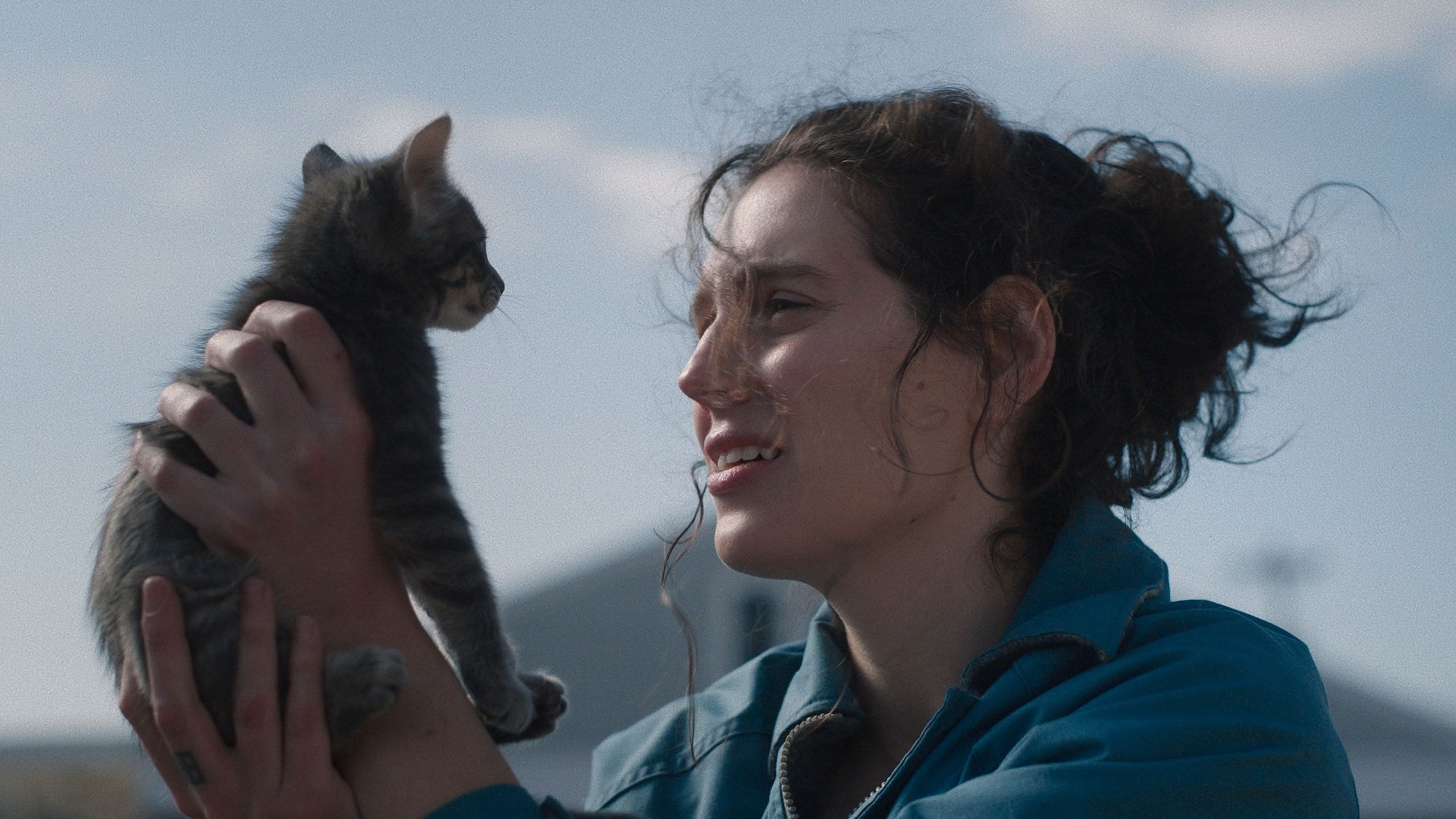
Sorry, Baby, Eva Victor’s writing and directorial debut, abstractly centers around a “bad thing” that happens to Agnes (Victor), which plays out in four parts. One section is dedicated to delicately portraying the assault Agnes endures from her graduate school advisor, Preston Decker (Louis Cancelmi), while the other three show us the complicated aftermath of her life. Victor has created an artful depiction of life after trauma that is likely to resonate with many.
Agnes is an English professor at a rural New England university, still living in the house she rented as a graduate student and recently taking over the vacant position left behind by Decker (who, of course, fled immediately following the assault to avoid charges). While Agnes’s life slowly moves forward, her best friend and graduate school roommate, Lydie (Naomie Ackie), moves away, gets married, and has a baby. To Agnes, it feels like everyone around her is able to move on while she remains stuck.
Victor’s Agnes, although forever changed by the assault, is a strong representation of a resilient woman. Her trauma doesn’t define her. She is smart, funny, and relatable. She’s able to build new relationships, maintain old friendships, and create the career she’s always wanted. But sometimes these relationships are affected by the past, and her career will always be linked to the man whose office she now occupies. Trauma influences every part of her life, but she refuses to let it control her.
But Sorry, Baby isn’t just a film about trauma; it’s also a story about growing up and moving forward with the friends you make in your early twenties. It’s tough being at different life stages than your closest friends, but Agnes and Lydie share an unbreakable bond. Victor depicts this relationship with striking accuracy, showing how they can reconnect easily even after nearly a year apart. Victor and Ackie share an authentic chemistry, never making you question if these characters are their true selves when they’re together. The scenes between Victor and Ackie are raw, joyful, and genuine, balancing out the heaviness of the trauma plot that could have overshadowed the whole film.
Sorry, Baby is told asynchronously, allowing the story to unfold in a smart, satisfying manner. The filmmakers have a solid grasp of the timeline, never leaving the audience questioning where we are in Agnes’ story—something that a less skilled writer and director might struggle with. It’s a straightforward narrative that uses time jumps effectively, not just as a storytelling gimmick.
Victor is well-supported in this poignant, heartfelt endeavor by a primarily female crew. Mia Cioffi Henry’s cinematography expertly complements Caity Birmingham’s production design, both cut together by Alex O’Flinn and Randi Atkins. A storyline as delicate as Sorry, Baby’s can deeply benefit from a crew who understands Agnes’s struggles, desires, and experiences in various, deeply personal ways. Victor clearly knew what she was doing when she assembled her crew.
Although there is so much more to say about the expert storytelling and emotional intelligence of Sorry, Baby, perhaps the biggest takeaway from the film is the breakout star of Eva Victor. By picking up this Sundance film for distribution, A24 is all but promising us we will see more of Victor in the near future.

